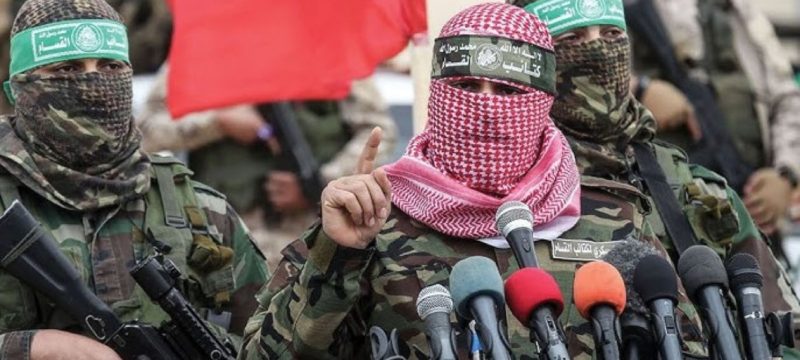Efforts to end the ongoing war in Gaza have hit a crucial point, as Hamas announced on Monday that it is reviewing Israel’s latest ceasefire offer but firmly rejected any condition requiring it to disarm, calling such a demand entirely unacceptable.
The Israeli proposal, presented through mediators from Egypt and Qatar, suggests a temporary 45-day ceasefire in return for the release of 11 Israeli hostages still held by Hamas in Gaza.
Read more: Hamas Strikes Ashkelon City Amid Soaring Civilian Deaths in Gaza
However, a key sticking point in the proposal is Israel’s insistence that Hamas begin disarmament—a condition the group immediately rejected.
In a statement late Monday, Hamas said it is examining the offer and will issue a response soon. In the meantime, senior Hamas official Sami Abu Zuhri, speaking to Al Jazeera, dismissed the disarmament demand outright, labeling it as completely unrealistic.
“The call for us to disarm is beyond unacceptable. It’s not just a red line—it’s a million red lines,” said Abu Zuhri. “People need to realize this is nothing but fantasy. It won’t happen.”
Hamas maintains that its resistance will continue as long as Israel’s occupation persists. Instead of disarming, the group has proposed a full and permanent ceasefire, alongside a complete withdrawal of Israeli forces from Gaza. In exchange, it is willing to release all remaining Israeli captives at once.
Talks held in Cairo on Monday ended without meaningful progress toward a long-term truce. Mediators are reportedly struggling, as both parties remain entrenched in their demands.
Political analyst Marwan Odeh, based in Ramallah, noted that the Israeli proposal fails to acknowledge the larger political context. “When Palestinians hear about Israeli plans for forced displacement and policies aimed at removing them from Gaza, it’s unrealistic to expect them to talk about disarmament without a clear political solution,” he explained.
He stressed that any discussion about disarmament is meaningless without a comprehensive end to the war.
Israel had violated a prior ceasefire on March 18, part of an agreement established in late January. Since then, the humanitarian crisis in Gaza has worsened dramatically.
Gaza’s Ministry of Health reports that at least 50,983 Palestinians have died and over 116,000 have been injured since Israel’s military offensive began. More than 1,500 people have died since the latest truce collapsed last month.
The ongoing conflict has further devastated Gaza, with renewed Israeli blockades worsening famine-like conditions and forcing hundreds of thousands to flee their homes once again.
Israel has yet to officially respond to Hamas’s initial reaction, though it continues to maintain that any post-war plan for Gaza must include dismantling Hamas’s armed capabilities.









